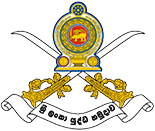I HAD A GLIMPSE of an ennobling sight on TV, through the endless euphoria at the end of the war.
Prabhakaran’s body was placed on a stretcher and some soldiers were standing by. I became apprehensive that they would desecrate the body physically in the background of the bitter experiences they had suffered at Prabhakaran’s hands when he was alive. But my tension was short-lived.
In a moment I saw a hand partly covered by an army shirt-sleeve, stretched towards the cadaver. There was a fly perched on the lip of the corpse. The hand brushed the fly away, not once but several times as it reverted to its perch obstinately.
The soldier was determined to protect the inviolability of the corpse of an enemy who would have blasted him to smithereens had he come so close to him when he was living. My hair stood on end as I reflected on the nobility of a culture that prompted an ordinary soldier to act with such refinement – a culture that had been nurtured on values such as those embodied in the Dhammapada stanza below:
akkocci mam avadhi mam – ajini mam ahaasi me – ye tam na upanaihanti veram tesuupasammati ["He abused me; he beat me; he defeated me; he robbed me" – hatred will cease in those who do not harbour such grudges.]
Presumably, the soldier may never have heard these lines in his life but he instinctively reacted to the impulse of the national blood stream that imbibed such noble principles for more than two and a half millennia. He was definitely a successor to Dutugemunu, who held a state funeral for his arch enemy whom he slew in battle. I felt proud to be a compatriot of the anonymous soldier.
Somapala Gunadheera
Editor’ s Note: It is rather unusual for a letter to the editor to be front-paged. But, we could not find a better place for this one.
(Courtesy: The Island)

